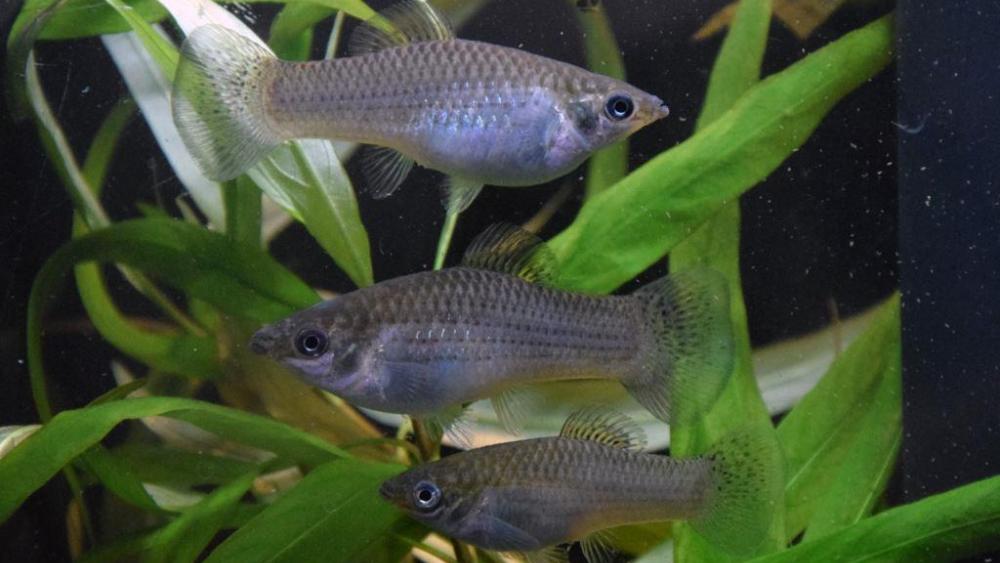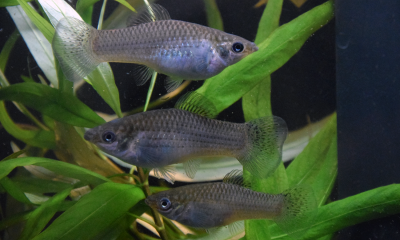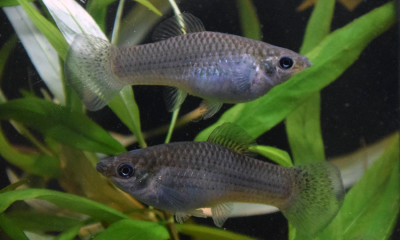
Verhaltensbiologie

Gruppenprofil

Der Amazonenkärpfling eignet sich hervorragend, um die Entstehung von Individualität zu untersuchen: Da er sich durch Jungfernzeugung vermehrt, sind alle Nachkommen identische Klone der Mutter. | Foto: David Bierbach
Our research focuses on two tightly related themes: individual differences (individuality) in behaviour and the development of behaviour during early ontogeny.
How (and why) do individuals differ in their behavioural patterns? When and how do such differences emerge during early ontogeny? And what are the main factors shaping individual behavioural trajectories? In order to gain insights into these fundamental questions, we combine experimental work with a powerful biological model system, the naturally clonal fish Amazon molly (Poecilia formosa), with mathematical modelling and computer simulations.
We have shown, for example, that strong individuality emerges even among genetically identical individuals isolated directly after birth in identical environments. Currently, one focus of our research is to use a high-resolution tracking system to map the exact (i.e. second by second) behavioural-experiential trajectories of genetically identical individuals from day 1 of their life. A second focus of our current research is to develop a general theoretical framework for the development of individual differences.







